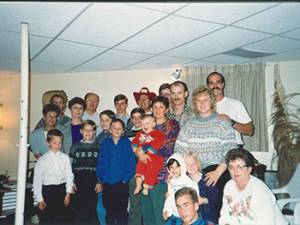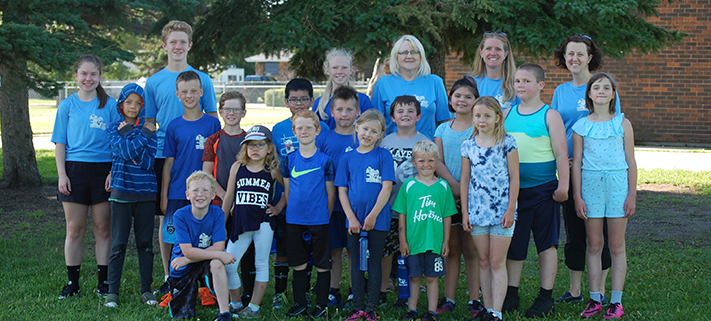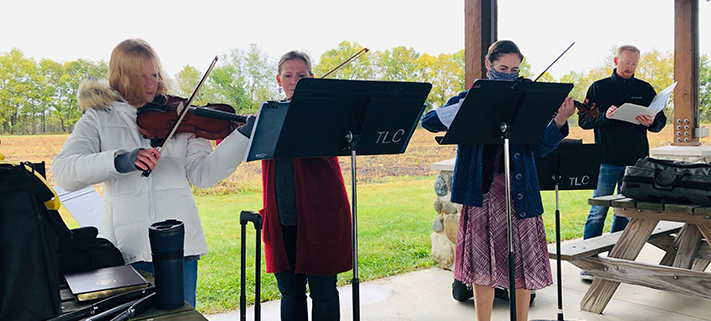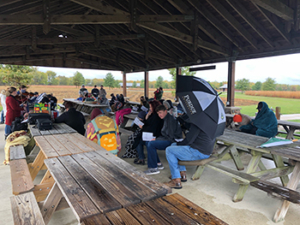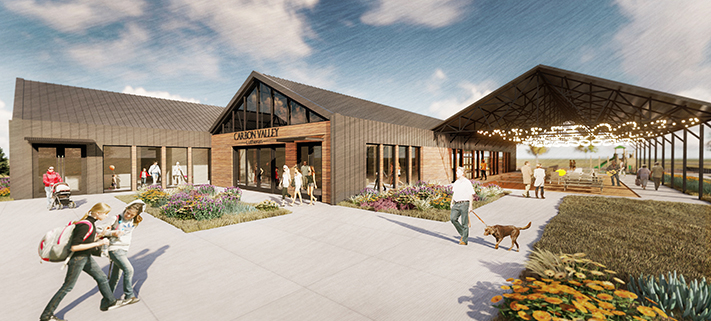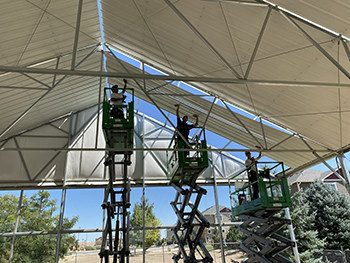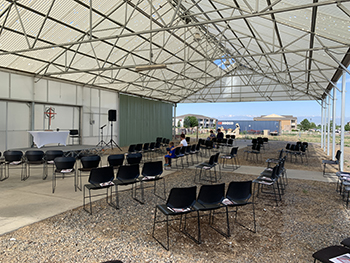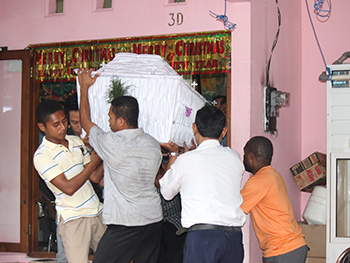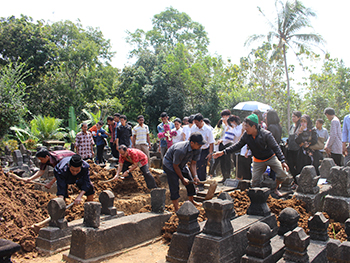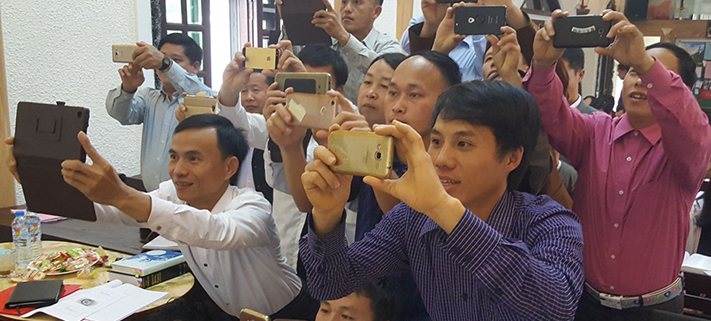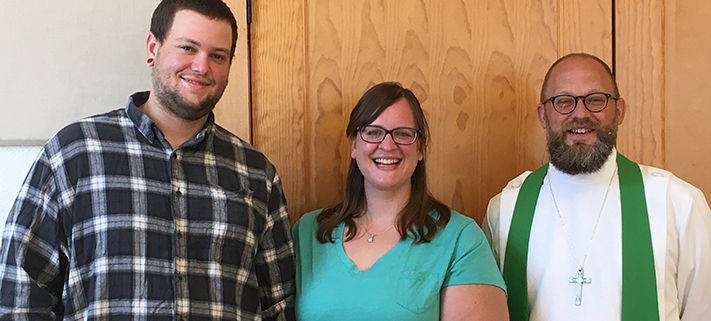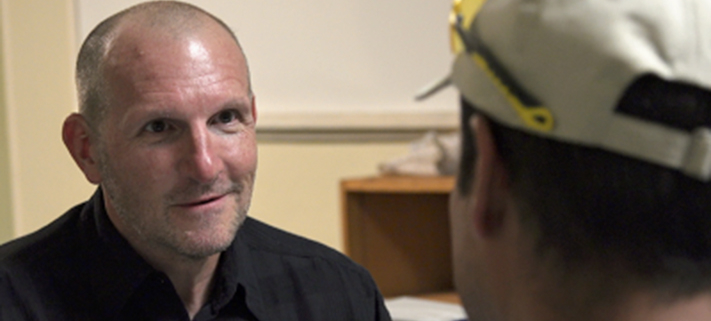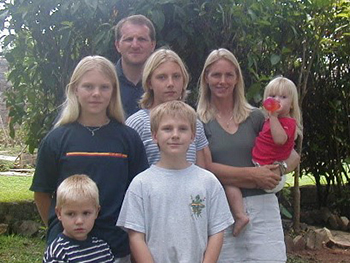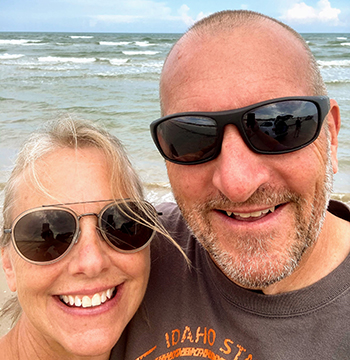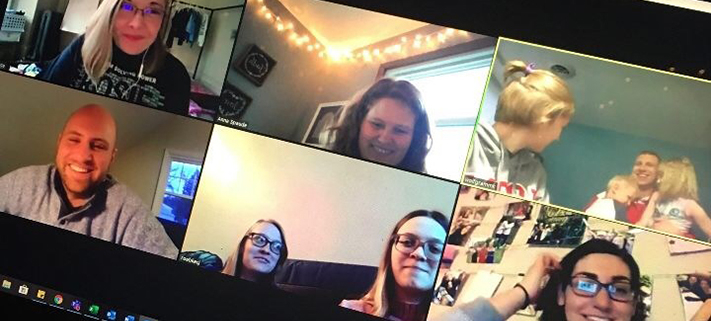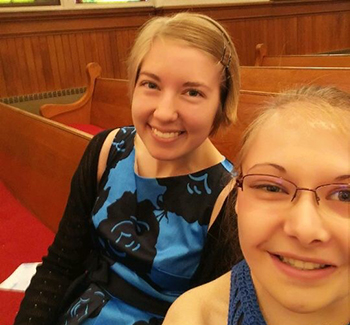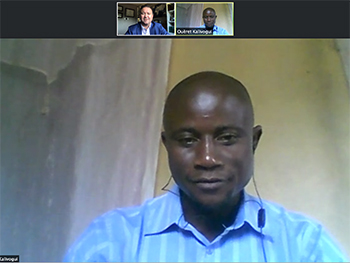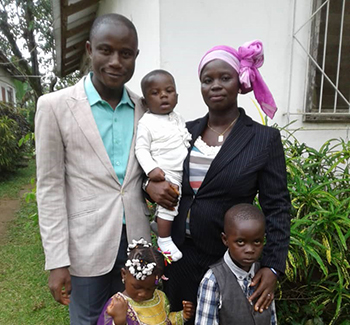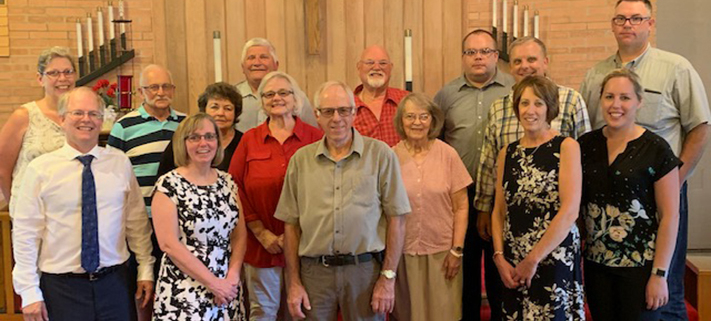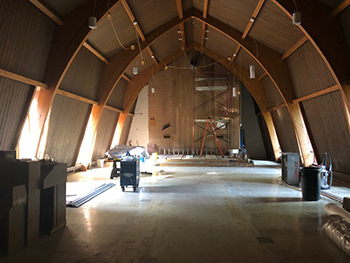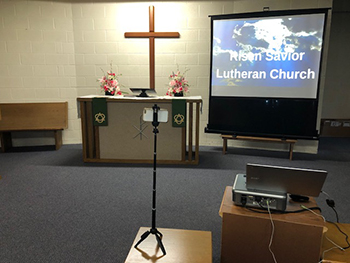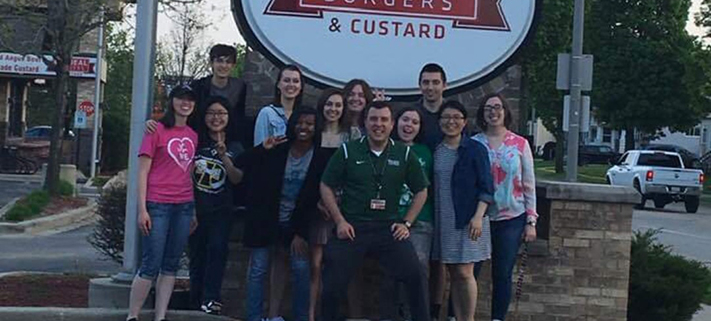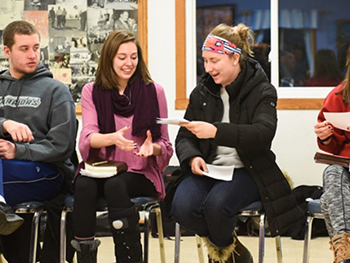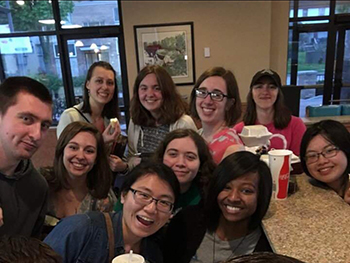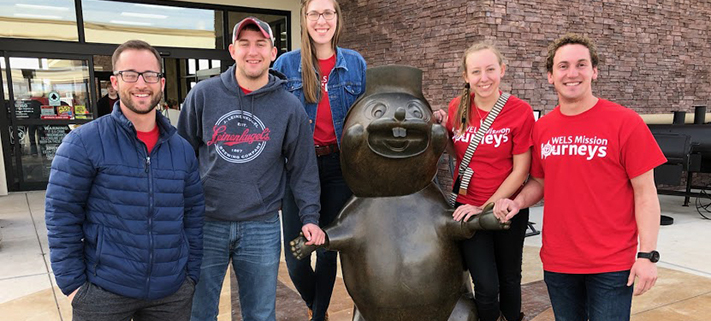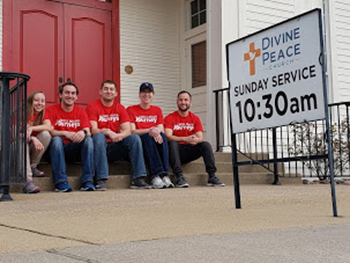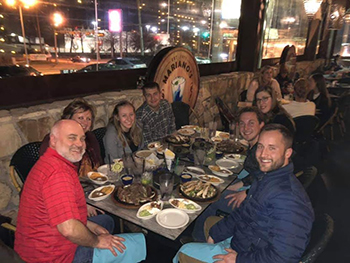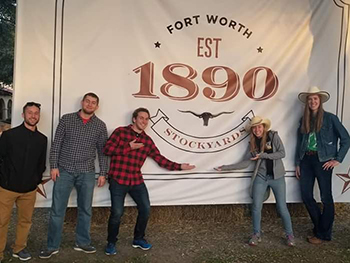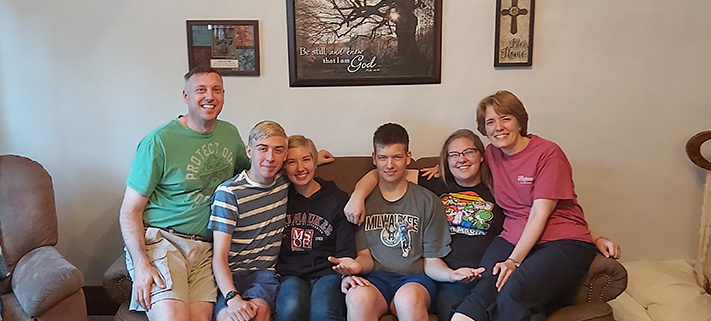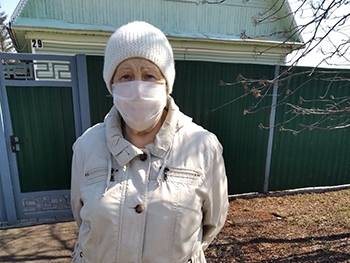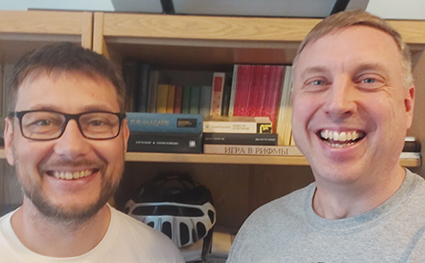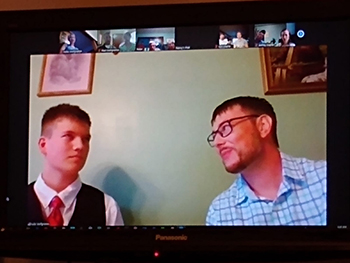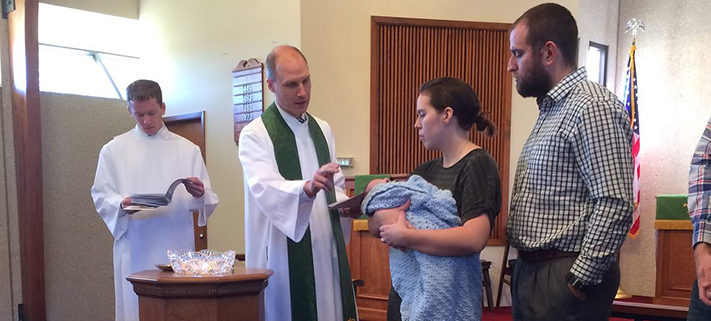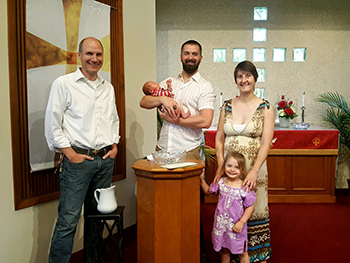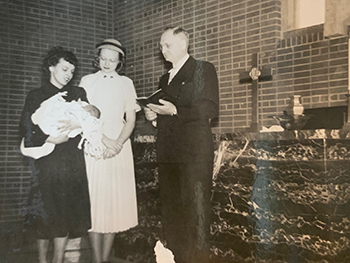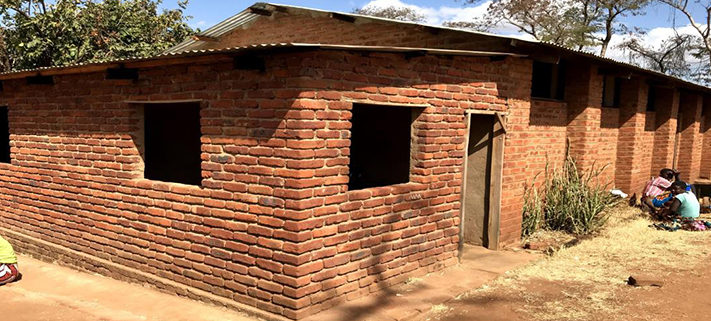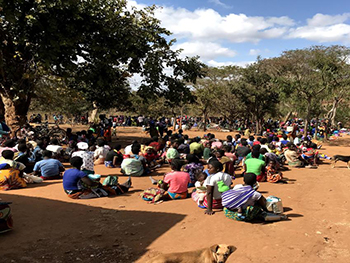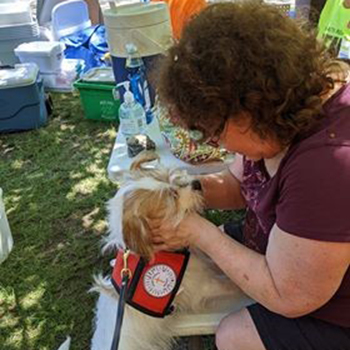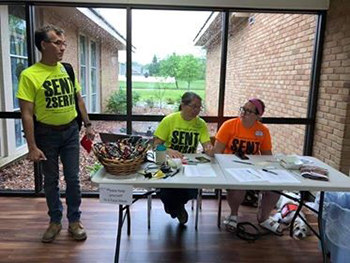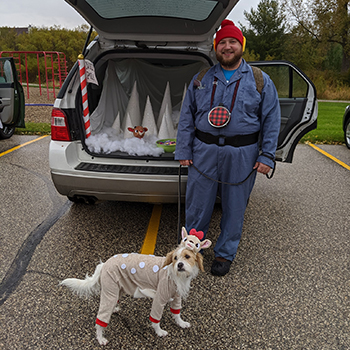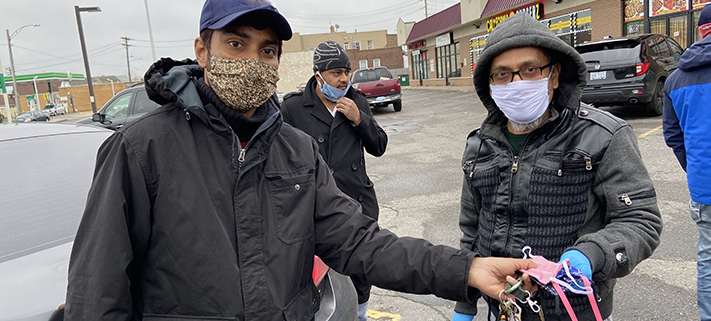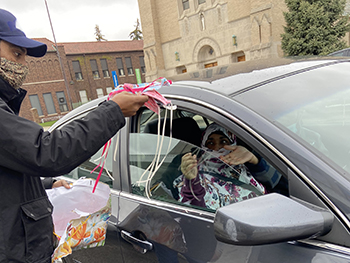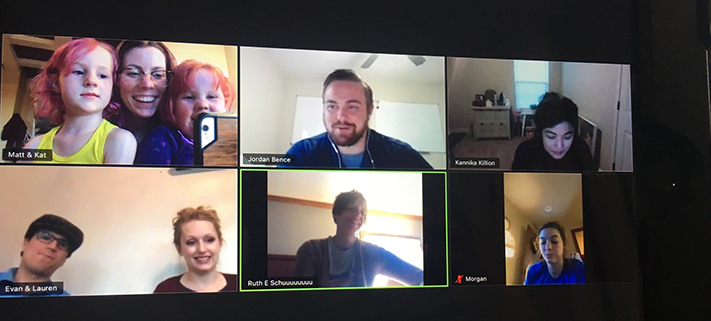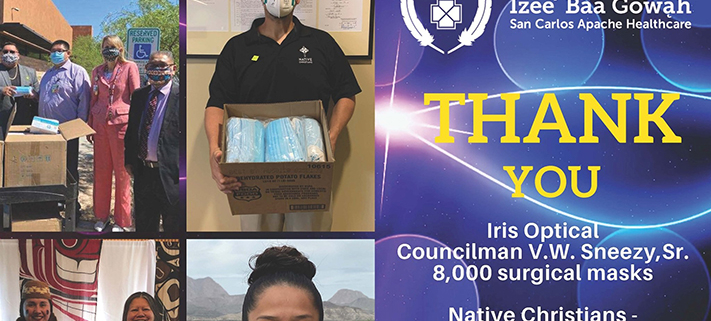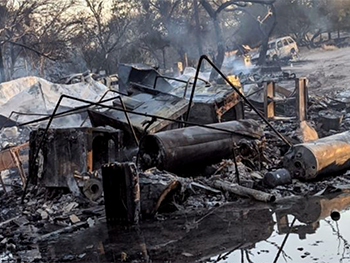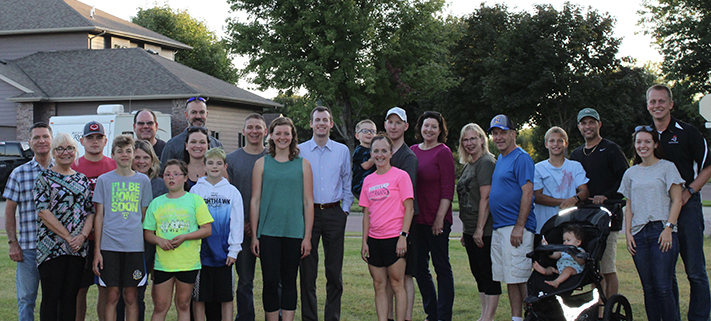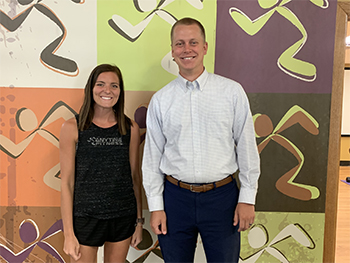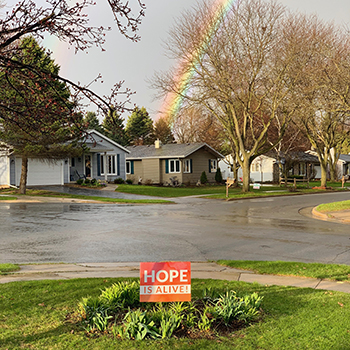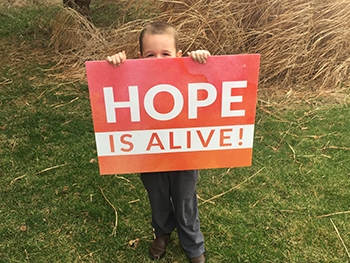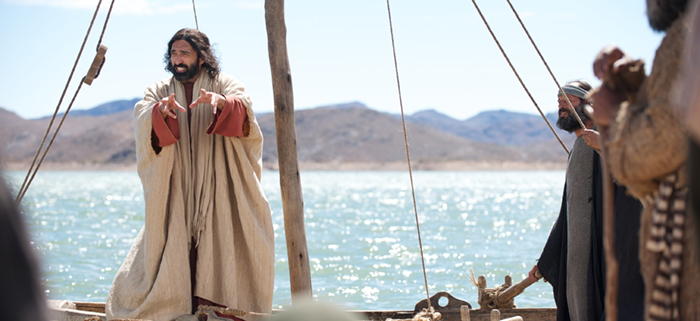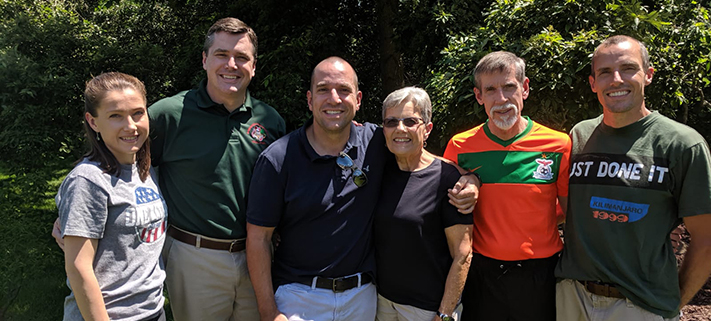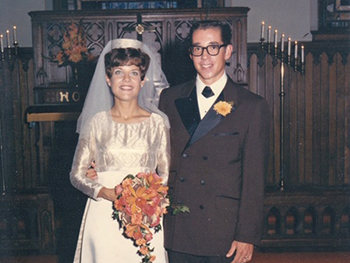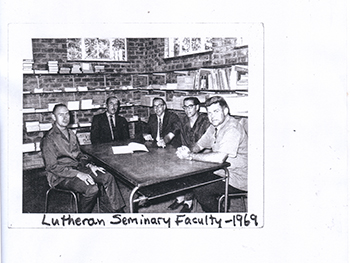What a thing it is to be someone’s pastor. A young woman lies in her hospital bed lost in a fog of bad news. You walk in the door. And so associated are you with the gospel, so married in her mind with this one essential thing, that it is as if the gospel itself has just walked in the door.
You are her personal Good News Man. They said no one could understand a single thought of Martin Luther unless they understood it first as a thought about the forgiveness of sins. This is your obsession, too, Lutheran pastor. Forgiveness is the only sun in your sky.
Forgiveness is the only sun in your sky.
Yours is the simple eloquence that is born of love for the gospel. And this love for the gospel is born in desperate need. This explains you. And it explains the wonderful, warm thing I see come over you as you arrive, in the moment of preaching, at your true subject. In a certain sense, it is the only thing you really know. You portray Jesus, the Son of God, on his cross. Then, with a Word from God, you unleash a power like none other in the world.
“Take this,” you say. “This is for you.”
You never forget that the man in the back, looking just fine, may be barely holding it together for want of an unambiguous Word of Christ-for-us. You need no reminder—no “note to self”—to fix your spotlight on Christ crucified and raised. Every. Single. Time. You know no other way.
To borrow from Tim Keller, there’s something rare and special about preaching that combines such warmth with such force, such transparent humility with such borrowed, towering authority. It is good and right that we know—we can just tell—that the preacher is himself put back together by the things he is saying.
My Jesus does not squander men like this. They do not just come along. They do not make themselves. Praise God, my pastors have more than 45-seconds of things to say about the cross. They live in the Spirit’s hard school. Translating the theology of grace and redemption into real life is what they are about.
That’s why they are “gospel predominant” preachers, but “gospel predominance” doesn’t necessarily reduce to word count. It is even more about the way the preacher handles with words the mystery of God’s grace revealed in Jesus. He exercises at this spot, as no other, all eloquence, vividness, provocation, and creativity that already reside in the Scriptures he holds in trembling hands. And why? If only to gain a fresh hearing for the gospel, this thing Jesus has done, and to have it be, in the Spirit, as though his listeners had never really heard it before.
“Gospel predominance” doesn’t necessarily reduce to word count.
And as he takes all the risen Christ is and all he has won and pours it freely out, let him take his time. If he needs a moment to regain his composure, we’ll wait. Because when this man speaks, he speaks for Jesus. The Lord Christ is intervening all over again in the affairs of people.
It is a good day whenever it happens.
Planning to Teach the Basics
In my thirtieth year in public ministry, I was sent back to the basics of preaching in a quite decisive way. I was privileged to create and champion an introduction to preaching as half of a capstone course in the pastor track at Martin Luther College. This subject shares the stage in the class with Christian Apologetics. The bulk of our time has young men on their feet.
But along the way, of course, I do have opportunity to articulate one man’s opinion about what preaching ought to be. You can imagine that when I take my turn in the morning chapel rotation, I know the boys are watching closely. The pressure I feel to get it right, so to speak, is the good kind. Yes, I think it has been good to immerse myself in the basics of preaching. I pray it will be good for you, brothers, to be reminded of these things.
Let’s get to it. Are there other criteria, besides explicit gospel content, that characterizes good preaching? Are there other things that, although they may appear in different proportions week by week, should happen virtually every single time?
In my exploratory mission, when preaching dominated my weekly schedule, I had created a list for myself. I didn’t use it to guide my writing in cookie-cutter fashion. Instead, I turned to my list (with a silly acronym you don’t want to know) just to ask myself, is this sermon ready? Or is some vital element missing or under-developed?
Here’s that list. Next, we’ll draw things out by way of an extended example.
Faithfulness to the Text
Crucifying Law
Fresh, Explicit Gospel
Impactful Illustration
“Aha” Application
Clarity & Coherence
Warmth & Force in Delivery
In this issue of Preach the Word, we’ll expand on the first two issues listed here. We’ll take up the rest in the issues to follow. Before we do, let’s load up our minds with a text from John chapter 10 and use it to put flesh on the criteria we will be considering.
“I am the good shepherd; I know my sheep and my sheep know me— just as the Father knows me and I know the Father—and I lay down my life for the sheep. I have other sheep that are not of this sheep pen. I must bring them also. They too will listen to my voice, and there shall be one flock and one shepherd. The reason my Father loves me is that I lay down my life—only to take it up again. No one takes it from me, but I lay it down of my own accord. I have authority to lay it down and authority to take it up again. This command I received from my Father.”
Faithfulness to the Text
There’s something special I hope to do with the particular Scripture that I expound for God’s people. I want it to be for them never the same—in the better stories they have to tell themselves, the better images to linger over, or what human stuff they share with a Joseph or a John.
Will my listeners, in the course of my preaching, gain an affection for this particular spot in Holy Scriptures? If I were to read my text again at the end of the sermon, would it feel awkward because, well, that wasn’t what the thing was about at all? Or will it resound with, “Yes, yes. I know this place well. I see that it has everything to do with Jesus. And now that I see that, I will never unsee it.”
To that end, was my study of the text in the “pastor’s private study” the true starting point of all my thinking as I imagined my way deep into that wide world of the Old and New Testaments and took in its horizon? Was this particular Word the true star of the moment rather than my own precious thoughts? Did the Spirit set the agenda?
Tim Keller has a useful analogy in Preaching. A sermon text is like a town in England. Every town has a Main Street, the flow of the inspired writer’s thought. Can I walk that Main Street in my sleep? Do I understand how one element follows on another? Likewise, there is a “road to London” from every sermon text to the preaching of Christ crucified, a path that is natural and unforced.
I’ll be calling it the “road to Oxford”—it’s a much more beautiful city than London. The point is that if I can’t see clearly from one end of Main Street to the other, or find that broader highway, I’m not ready to preach.
It’s an axiom in communication that context always matters. If I walk by the front desk at MLC and say to the receptionist, “You look hot today!” would it matter if you noticed that the air conditioner blew out? Better, would it matter if you knew that she is my bride?
Or say I stood up beside a man on the stage and announced, “This man is my friend!” How does the communication event change if the man is being celebrated for a lifetime of achievement, or if he is, instead, being universally vilified?
Context always matters. Asking, “Where do I stand in this text?” can be just the trigger we need for illustrations that are organically connected with the Word of God and applications that shine with the ways life can now be lived in our text’s special light. Also, when a particular text lacks law or gospel, the immediate context is the first place we might look.
How might John 10 (above) be “never the same” for those who hear me preach? It might happen if they’ve never heard how ferocious are the words, “I am the Good Shepherd,” when taken in context. They are fighting words addressed to spiritual tyrants. They are fiercely protective of the once-blind man who is there in the same room. My Jesus stirs the blood! I know where I stand in the story. It is with the one who can only say, “I was blind. Now I see.”
In the end, being textual is precisely what helps me paint the unforgettable gospel, my true subject, in the fresh colors of a particular Scripture.
Being textual is precisely what helps me paint the unforgettable gospel.
Crucifying Law
It is possible, as David Schmitt writes1, to see only Law and Gospel in a text to the neglect of its unique atmosphere. Preaching can, as we all know, become something far more formulaic and predictable than the thing itself, the gospel, as it animates the Bible. We have more ways to interrogate a text than to only ask, “Where is the law?” and “Where is the gospel?”
Yet, we would all agree that neglecting Law and Gospel would be the graver problem. I will save some thunder to keep Law and Gospel in front of us in subsequent articles. I only introduce here the familiar matter of preaching Law as if there were no Gospel, and Gospel as if there were no Law. Questions of interest include: what is the range of ways the Law can perform its function, from the brutal to the tender? How can the familiar gospel be, as the mercies of God are, “new every morning?” None of us tire of these age-old challenges.
I often find my young students over-writing a Law portion of their chapel devotions. They can create a lot of inches of text filled with “How many times don’t we…?” My boredom tells me something is wrong. Yes, probably with me. Yet it remains that I am not well served. But I remember a gifted student who had, essentially, one condemning sentence followed by a dreadfully long pause. “Brothers, you come to me and show me my sin, and I will kill you in my heart.” In that case, less is more…and devastating.
I use the example from John 10 with my students and find my heart pounding as I do. It is not easy. I remind them that they know of dangers their own younger brothers are in—the way some play with fire—and they may think, “What is that to me? What would I gain by making this my problem? Being a pastor will make you hip and cool. It will get you admired. You can be someone.” So, I raise my voice quite uncharacteristically, and I look them in the eye and shout, “Hired hands!”
Preaching cannot heal deeply enough if it does not wound deeply enough.
It’s brutal. And the compassion it comes with is not, in that moment, self-evident. Preaching cannot heal deeply enough if it does not wound deeply enough. We cannot have people saying, “Yes, yes. We know already. Next comes the Gospel so get on with it.” We need to crucify and kill the flesh. We need, as good Lutheran theologians, to call things as they are.
Fresh, Explicit Gospel
“The reason my father loves me . . .”—strange to hear Jesus start a sentence that way. We think, “What? He needs a reason?” The reason is that Jesus lays down his life voluntarily. There was no coercion in it to spoil the unspeakable beauty of the act. The Father prizes the act. And he prizes all those who prize with him—all who see it, too—by Word and Spirit.
This is the answer to the one who howls at me in bed. “Satan, when you can find something here that is not perfect, exquisite, and complete, Christ’s free laying down his life only to take it up again, then you can come to me. Until that day, this is the act I prize. This is the reason I love him.”
We add nothing to the power to the Word of God, naked and unadorned by our own personalities or rhetorical prowess. But we do love to speak the eternal Gospel in the unique terms of a particular text for which no other text can substitute. For this we endure our private birth pains, the sweet agony of writing another sermon.
What’s Coming Next Time?
Our sweep of the basics is only begun. By Impactful Illustration I mean that we want to put a human face on, or bring into now, whatever became the most significant burden of the sermon. We would like it to pack a wallop and not leave the heart unaffected.
By an “Aha” Application I mean that we search out the implications of the text before us for our changed situation as grace opens it up. Life is different “in view of God’s mercy.” It’s what we see in a way we hadn’t seen it before that makes the difference.
By Clarity & Coherence I mean that we have an instinct for when in our writing we may be taxing our listener’s comprehension by our own lack of clarity or their attention by the density of our content.
By Warmth & Force in Delivery I mean that we work within our own personalities at the same time as we display the version of ourselves that is captivated by the cross. Our preaching flows from our own faith. We have learned and translate into life what the gospel means, and we long to love it much better than we do.
Who Is Competent?
I look at the faces of the boys in Preaching 101 after laying out these criteria. They look back at me overwhelmed. I always say, “Then my work here is done.” “Who is competent for such a task?” If that’s how Paul felt, then we are in good company in the way we make our resort to Christ from down here on our knees.
The answer to the “who is competent” question was not “Well, no one.” The answer was that Jesus is our competence by the means of grace and by the Spirit who lets his power rest on the nothingness of the man and the apparent nothingness of his messages. His grace is sufficient for our need. When we are weak, we are strong.
Kierkegaard wrote about the beautiful tapestry of Christian theology, “What good would it do me to construct a world in which I did not live but only held up to the view of others?” I borrow from him to remind you, brothers, to live in that world of grace, the real one, that you display it to others week after week. I remind you of what can come as a surprise to the pastor. The Good News you are so eager to bring to the broken is first for you. We “comfort with the comfort we have received.”
The prerequisite is a full heart. You are forgiven. This is not information for you to store up for some future day’s use. This is Now. You are forgiven. What would Jesus have you do, preacher? He would have you be glad.
(By the way, I’ll be quoting diverse voices in the year of articles ahead. I do not quote them as authorities. It will be because I like what a certain writer caught in skillful or compelling words. Craddock can be dangerous. Keller can be “close but not quite.” Such as I am, I have tested everything and have prayerfully kept what is good.)
Bottom line: if our job as preachers were to promote ourselves, then we had better be all about that. No chinks in the armor, please. But if our high and holy task is to elevate Christ—who he is and what he has done—then we can dare to be sinners. We can dare to be ourselves. We can be, as J. P. Koehler wrote, “ever more deeply absorbed in the gospel—not letting go until it blesses.”
We can be Good News Men.
Written by Mark Paustian
Dr. Paustian is a professor of communication and biblical Hebrew at Martin Luther College where he teaches “Advanced Christian Rhetoric” which combines an introduction to homiletics and an introduction to apologetics in one course. He holds a PhD in Communication from Regent University.
1 “Law and Gospel in Sermon and Service” from Liturgical Preaching. Paul Grime and Dean Nadasdy, eds. CPH 2001. Reissued in 2011 with the title Preaching is Worship: The Sermon in Context. Schmitt teaches practical theology at Concordia Seminary, St. Louis.
Learn about how WELS is assisting congregations by encouraging worship that glorifies God and proclaims Christ’s love.
WELS Commission on Worship provides resources for individuals and families nationwide. Consider supporting these ministries with your prayers and gifts.
[fbcomments num=”5″]
